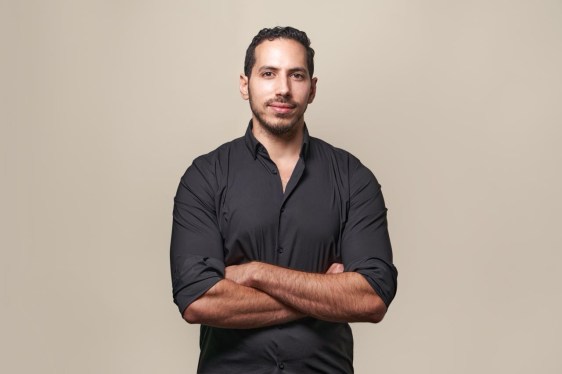Khalid Ashmawy remembers the first time he wired money home while studying in Europe. He had just received his monthly stipend as a master’s student in Stuttgart and wanted to send part of it back to his family in Cairo. He recalled that it was usually a slow and expensive process. For example, a $400 wire transfer could cost $40 in fees and take three business days to arrive.
Years later, while working at Microsoft and Uber in the U.S., and even after founding a startup, that experience had not improved much. The persistent pain point across different stages of his career eventually inspired Ashmawy to launch Munify, a cross-border neobank designed to give Egyptians abroad a faster, cheaper way to send money home and, for residents in the country, access to U.S. banking.
Earlier this year, the startup joined Y Combinator’s Summer 2025 batch, a rare entrant from outside the U.S. and one of the few without a core AI pitch in a class dominated by generative AI startups. The company also raised $3 million in seed funding from the accelerator and other regional investors, including BYLD and DCG.
The founder and chief executive told TechCrunch that banking was not built for people like him, describing it as very costly, time-consuming, and fragmented. He stated that it is a problem he has personally experienced and one that resonates with a lot of people who want to send money back home quickly and efficiently.
Ashmawy grew up in Egypt, studied computer science, and developed a deep love for software early on. A scholarship took him to Europe, where he completed two master’s degrees in Germany and Switzerland. From there, he spent seven years as an engineer and team leader at Microsoft and Uber, experiences that opened his eyes to the world of disruptive technologies and startups.
His next step was inevitable. In 2019, Ashmawy left Uber to launch Founders Fund-backed Huspy, a proptech platform focused on mortgages in the Middle East, where he served as chief technology officer until 2022. Leaving Huspy gave him space to reflect on his own immigrant journey. Once again, the issue of remittances loomed large. Meanwhile, in other emerging markets, platforms like Nigeria’s LemFi and India’s Aspora were already taking off, helping migrants from those countries send money back home.
Egypt is one of the world’s largest remittance markets, receiving nearly $30 billion in inflows annually. While bank wires and traditional remittance platforms such as Western Union and MoneyGram remain the dominant options, Munify hopes to be the first choice in a growing crop of digital banks that promise cheaper and faster transfers.
According to Ashmawy, Munify serves Egyptians abroad, primarily in the U.S., U.K., Europe, and the Gulf, who want to send money home instantly and at better rates. Munify also provides businesses, remote workers, and freelancers in the Middle East a way to open a U.S. bank account and card using only a local ID to receive and spend money, as well as hedge against local currency volatility.
The CEO told TechCrunch that the main reason they are different is that they are building their own rails and directly connecting the banking systems across different countries. He added that the platform, which just launched two weeks ago, is already seeing early adoption through word of mouth with thousands of sign-ups. He stated that they have really tailored this experience for people from the region.
On the business side, Munify has signed contracts with mid-sized companies and enterprises, representing a projected $50+ million in monthly cross-border volume, according to Ashmawy. The startup operates on a dual consumer and business model, offering remittance and banking services for individuals while providing APIs for businesses to send and receive cross-border payments. It plans to expand beyond Egypt to other Middle Eastern and adjacent countries, gradually stitching together regional banking rails. Its revenue comes from FX spreads, interchange, and payment flows.
Y Combinator’s batches over the past couple of years have favored AI and developer tools from the United States. So how did the Egyptian fintech get in? Ashmawy credits the acute nature of the problem. He said that if you are solving a big and urgent problem, that is what really matters, regardless of whether the current wave is AI or something else.
But there is precedent for this backing as well. YC has historically invested in startups solving hard financial infrastructure problems, from Stripe to Coinbase. Similarly, remittances are one of the most entrenched pain points in global finance and one of the accelerator’s consistent focus areas when backing startups from emerging markets before its recent AI tilt.
In the midst of that, Munify represented a chance to back a founder with experience at two U.S. tech giants, a track record of building one of MENA’s top proptech companies, and a personal connection to the problem.

